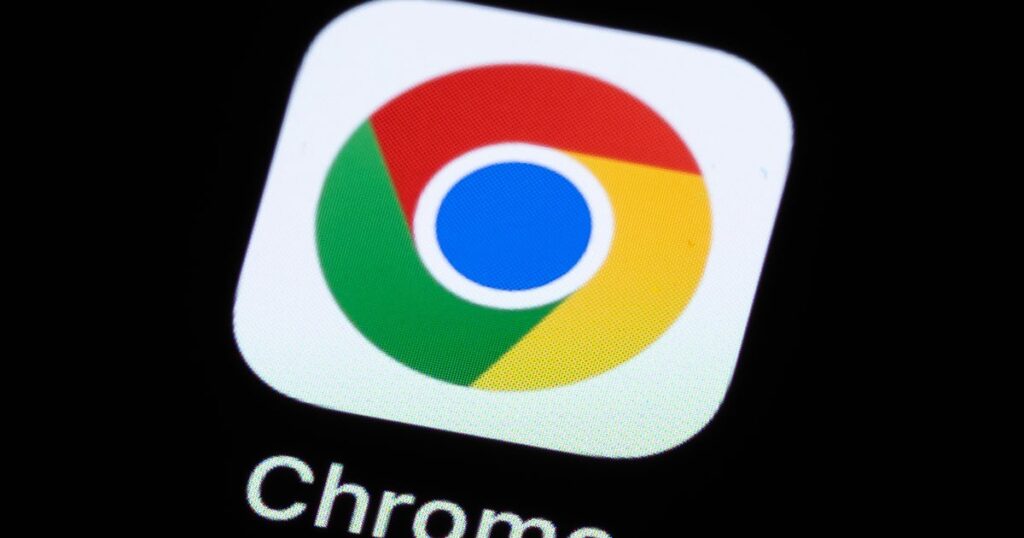We may not think hard about our web browsers, but they have huge power over our lives as the gateway to the internet. Every day, we use them to search for answers, talk to friends and learn new things.
And if you’re on the internet long enough, your default web browser is likely Google Chrome.
Google’s dominance over how we search the web and browse the internet is by design, and even illegal, according to a federal ruling in the company’s online search monopoly case.
Last year, a federal judge ruled that Google broke the law by making it harder for consumers to use anything else. The judge found that Google had paid companies like Apple and Samsung billions of dollars a year to have Google become the default on smartphones and web browsers.
But beyond the question of legality, consider that using a different web browser just might be better. You might even be surprised by how much more secure your browsing experience becomes when you leave the walled Google ecosystem.
When you make Google your default search engine, default browser and default password manager, you are making yourself less secure online, said Mishaal Khan, a chief information security officer for several mid-sized companies.
“Putting all your eggs in one basket is pretty dangerous,” he said. “Especially in a basket that’s owned by a huge conglomerate whose entire goal and existence is based on… collecting information about you to earn money.“
HuffPost asked a range of tech and security experts about their favorite non-Google browsers.
Mozilla Firefox
Khan said his favorite web browser is Firefox, which was developed by the nonprofit Mozilla Foundation, because it focuses on privacy and is open source for tech-savvy people to customize and learn from.
“It does not track users. It does not send any tracking information back to its headquarters, whereas Google Chrome and the entire ecosystem is monetizing off of what you do on the internet,” Khan said.
Every time you are signed onto Google Chrome, meanwhile, you are helping Google build a detailed profile of your interests and habits for ad trackers. You can erase your web and app activity from Google’s records, but the idea behind privacy-focused browsers is that they do not do this to begin with.
Khan also noted that on Firefox, you can open “345 times as many tabs” than you can on Google Chrome without it crashing because the browser is less resource-intensive than Chrome is on your computer.
And if you’re loving Firefox, try Firefox Focus, a free and open-source privacy-focused mobile browser that is also developed by Mozilla. Thorin Klosowski, a security and privacy activist for the Electronic Frontier Foundation, said this browser is a useful option for mobile devices because “it has solid tracking protection out of the box, and the big delete button makes it simple to wipe your history.”
“It can be useful for all the random, often pointless searches you might do on your phone so they aren’t used for ads or whatever else,” he noted.
Brave
“The reason I use Brave is because I just frankly got sick of ads and ad tracking, and what I perceive to be an incredible invasion of privacy,” said George Kamide, co-host of the cybersecurity podcast “Bare Knuckles and Brass Tacks.”
When you use Brave, the browser blocks trackers and third-party cookies that are monitoring your activity as you tap and click through the web.
“You can still have Gmail open in Brave. It’s just disrupting some of the cookies and stuff like that, but you can still get it functional,” Kamide said. “I have converted family members because just on the user experience alone, they were like, ‘Oh, I can, like, finally read the BBC and not have shoe ads in my face.’”
DuckDuckGo
Digital product leader and AI researcher Jill Heinze said she purposefully switched from Chrome to DuckDuckGo as her default web browser earlier this year after an “increasingly polarized political environment made me question more seriously how my data privacy in many ecosystems could be infringed,” she said. “Government phone searches at the border, for example, made me newly sensitive to what’s in my browser history.“
Heinze likes DuckDuckGo because this browser has “a solid reputation for not storing, and therefore not sharing, your history. It surfaces general ads based on your present search, but doesn’t use other targeting methods.“
Now, “any time I have a random curiosity, DuckDuckGo is my first stop, and I don’t have to worry that my freely exploring topics will be forever tied to my identity or pushed to me in ads across all of my devices,” Heinze said. “I find it simple and clean, and with one-button press, I can wipe out my tabs, which does give me at least a feeling of more control over my data.”
A browser switch takes some time to get used to, but it can create lasting change.
No matter which browser you choose, give it a try for at least two weeks. You might be instinctively missing Google the first few days, but by the end, you might be surprised by how much you like your new browser.
When researchers for a National Bureau of Economic Research study paid people to use Microsoft’s Bing for two weeks, a significant number –– about 22% –– chose to keep using it even after the bribes ended, with most of those users reporting that Bing was better than expected.
In other words, many people are willing to switch to a new browser if they are just given the chance. Major tech giants like Google win when you don’t realize you have other options that can give you equally, if not more, secure browser experiences.
But that’s a choice that’s still in your power to make.
Read the full article here








